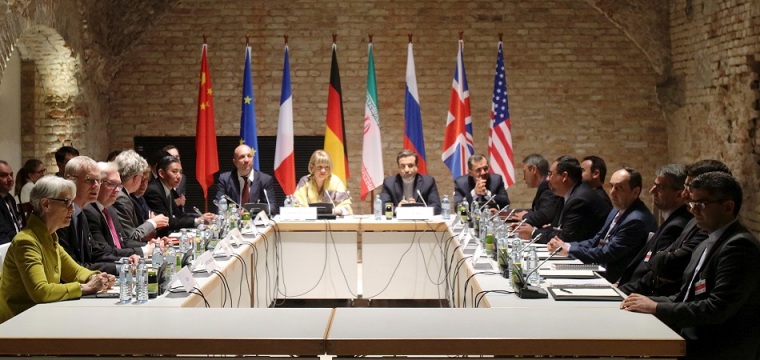Nuclear deal with Iran being penned: Iran foreign minister

VIENNA (Christian Examiner) – Sources inside the Iranian government claim the writing of the nuclear deal between Iran, the United States and other countries began as the first round of negotiations between the countries ended in Vienna yesterday.
Foreign Minister Hamid Baeedinejad, director of Iran's political and international affairs, told the Islamic Republic News Agency (IRNA) that member countries of the P5+1, including the United States, Britain, Germany, China and Russia, had started a draft of the Comprehensive Joint Plan of Action. According to Baeedinejad, the elimination of all economic sanctions on Iran was a "high priority" of the agreement.
Meanwhile, President Obama has said he will not meet with Israeli Prime Minister Benjamin Netanyahu, who stands to lose the most from a nuclear deal, until after the June 30 deadline for negotiations has passed, the New York Times reported April 23.
On April 13, Obama reportedly told a group of American Jewish leaders concerned about the U.S. relationship with Israel that he remained committed to Israel in spite of the rupture over Iran's nuclear program, those who attended the meeting told the newspaper.
Two days after the conversation between Obama and his Jewish guests last week, Netanyahu told a gathering at a Holocaust Memorial in Israel that the ghosts of World War II were rising to challenge global peace.
"Just as the Nazis aspired to crush civilization and to establish a 'master race' to replace it and control the world while annihilating the Jewish people, so too does Iran strive to gain control over the region, from which it would spread further, with the explicit intent of obliterating the Jewish state," Netanyahu said.
"Iran is advancing on two tracks: the first in developing the ability to arm itself with nuclear weapons and stockpile ballistic missiles; and the second – exporting the Khomeinest revolution to many countries by widely using terrorism and taking over large parts of the Middle East. Everything is out in the open – it is all taking place in broad daylight, in front of the cameras. And yet, the blindness is immense."
Netanyahu's comments were not reported in American newspapers, but were heard clearly in Tehran. Iranian President Hassan Rouhani countered Netanyahu at the Asia-Africa Summit Conference in Indonesia April 22, calling Israel an "occupying regime" threatening peace in the Middle East.
Rouhani, however, expressed confidence that Iran – once a nuclear power – would bring what he called "peace" to the region.
"The final agreement should ensure Iran's right to use nuclear energy for peaceful purposes and also secure the lifting of economic sanctions. I announce here that our foreign policy is based on constructive engagement; and I emphasize that such constructive is to the benefit of all of us involved and the benefit of other peoples of the world," Rouhani said.
Rouhani credited Iran with bringing about negotiations over its nuclear program, and said that "complex and lengthy negotiations are under way which I am glad to say is on the constructive track could lead to a final solution."
Iran has repeatedly insisted that its nuclear aspirations are peaceful, but the nuclear research it is conducting has occurred simultaneously with the development of new intercontinental ballistic missiles (ICBMs), capable of reaching Europe. Iran already has missiles capable of reaching Israel.
Still, Gholam-Hossein Dehqani, Iran's deputy ambassador to the United Nations, said the potential for nuclear proliferation in the Middle East was Israel's fault.
"The existence of nuclear weapons in the hands of the Israeli regime has foiled all international and regional efforts for the establishment of a Middle East zone free of nuclear weapons and continues to pose a serious threat to the security of the Non-Proliferation Treaty state parties in the Middle East and has resulted in the non-accession of some states to international instruments prohibiting weapons of mass destruction," Dehqani said at the U.N. earlier this month.
The existence of nuclear weapons in Israel's arsenal was a closely guarded state secret until March 2015, when the Obama administration declassified defense intelligence assessments on Israel's nuclear weapons stockpile.